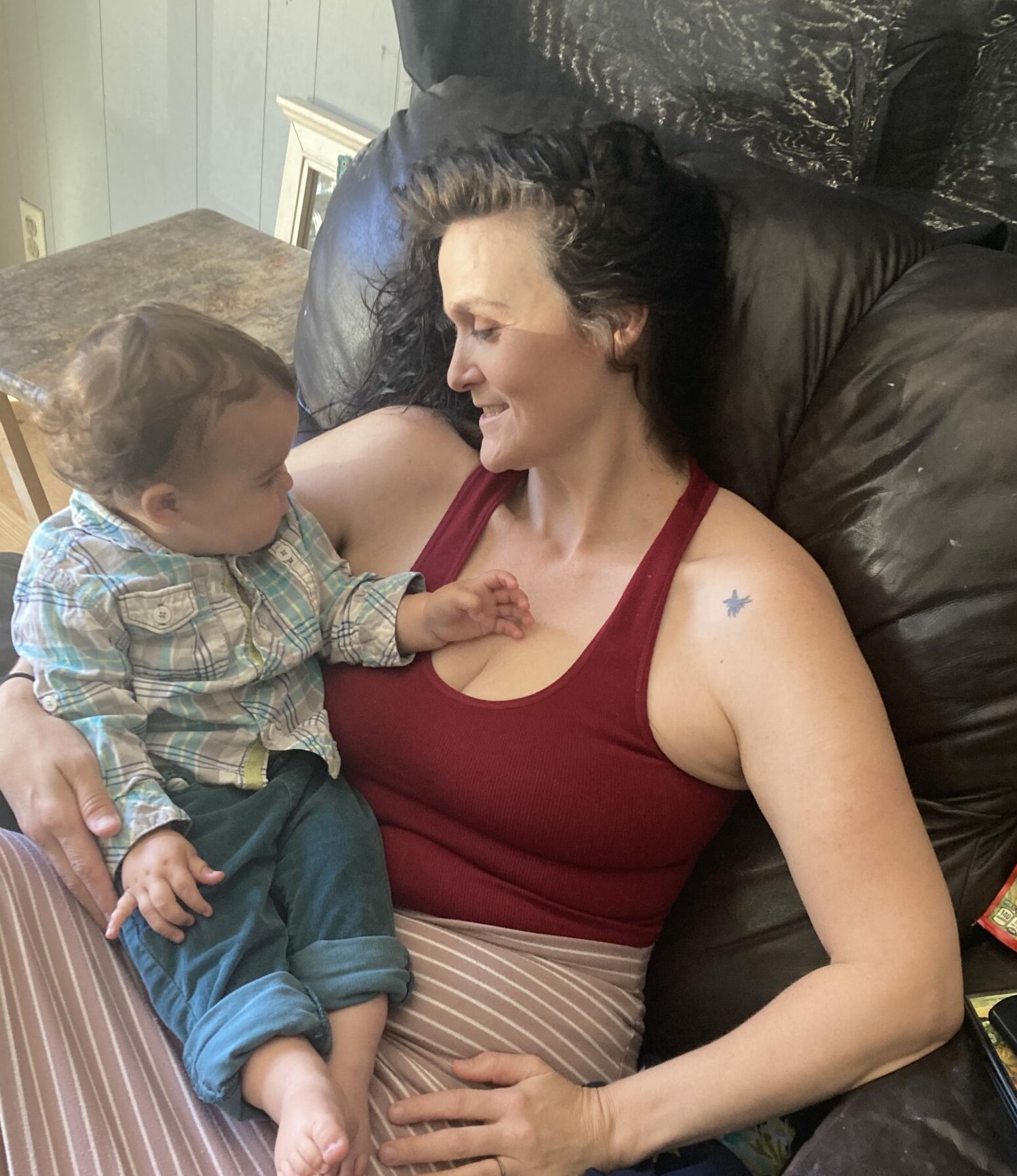It was June of 2023. I was five days postpartum when I started to get really erratic blood pressure readings. It would go from 177/206 to 123/79 within minutes, up and down like a roller coaster. I was also having palpitations and I remember telling the doctor later that I had a twinge of pain on the right side of my chest.
Even though I was told it was most likely stress from the postpartum period, something in me knew that wasn’t true. I called the 24-hour nurse, described my symptoms, and waited hours to hear back from someone. They called so late I almost didn’t answer, my reasoning being, “If it were urgent, they’d have called sooner!” But again, I knew better and I took the call.
The nurse advised me to get checked out. It was already 11 p.m. I had a sleeping newborn and a 4-year-old, but I went in, and thank goodness I did, as I had three pulmonary emboli through my lungs. I was hospitalized for two days, put on apixaban for six months (goodbye, breast milk) and had extensive follow-up testing.
I’m so grateful I knew to monitor my blood pressure and to the doctor who didn’t dismiss me as a nervous postpartum woman and actually ordered the CT that caught my blood clots.
I’ve become a huge advocate to those around me, especially pregnant women, about the dangers of blood clots. I urge postpartum woman to monitor their vitals, stay as active as possible, and hydrate.
In addition to pregnancy, my other risk factors were that I had Covid during my pregnancy, and I may also have antiphospholipid syndrome.
My advice to others is to always listen to your body! Monitor your own vitals! Be your own advocate!
The whole ordeal was very traumatic and I have a lot to work through, but I thank the universe for every day I get to wake up to my children, knowing I was that much closer to death once.
Resources
Pregnancy and Childbirth
Psychological Impact of Blood Clots
Blood Clot Resource Center




